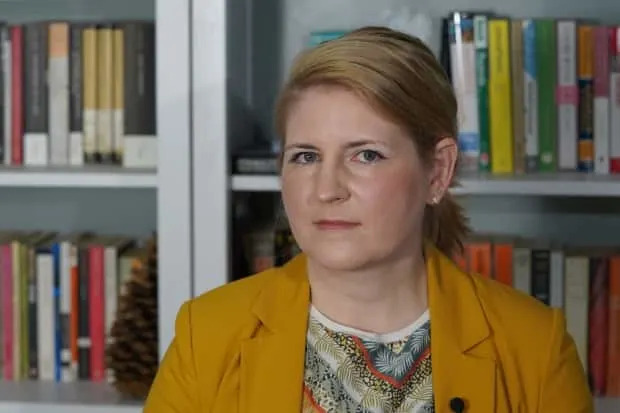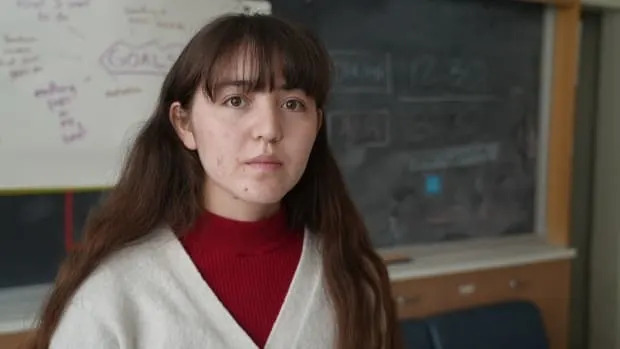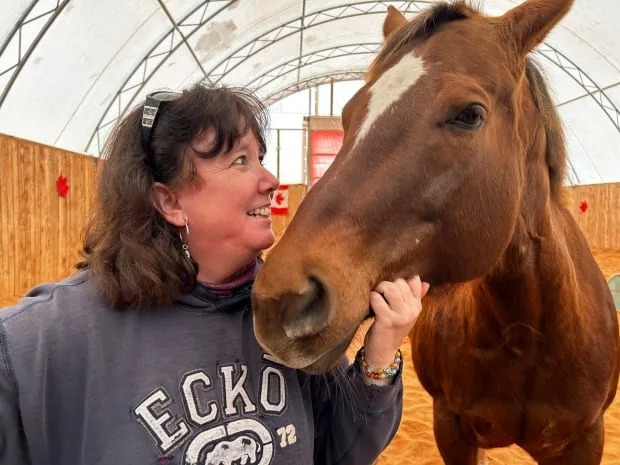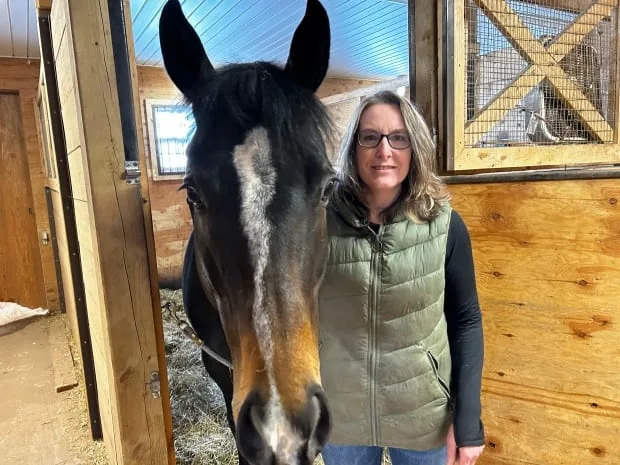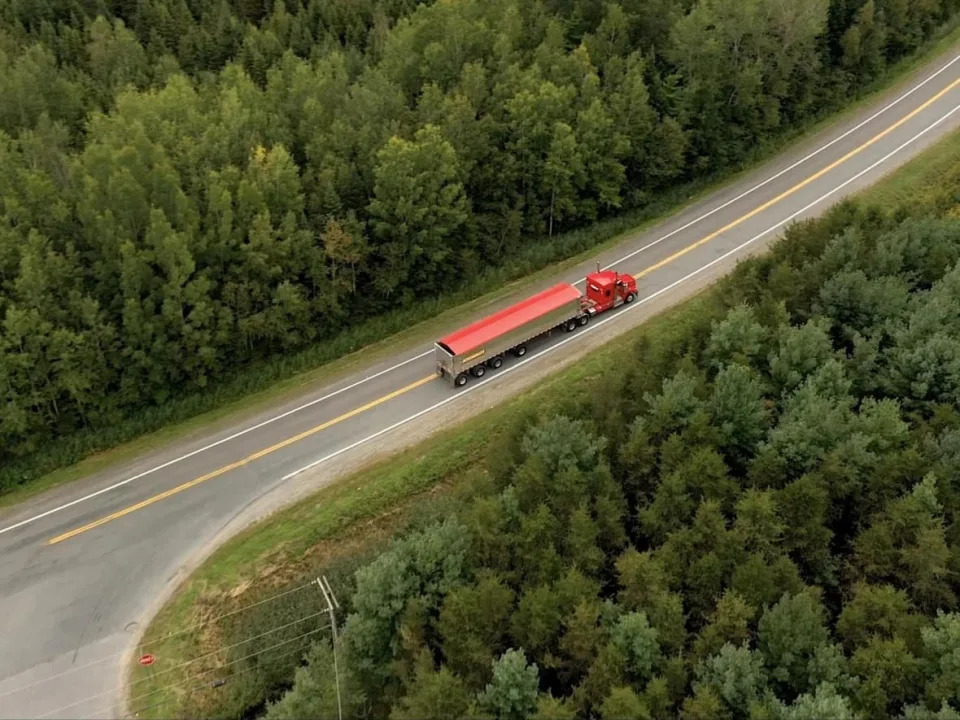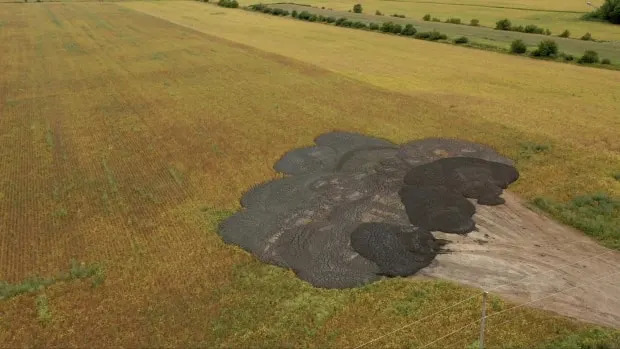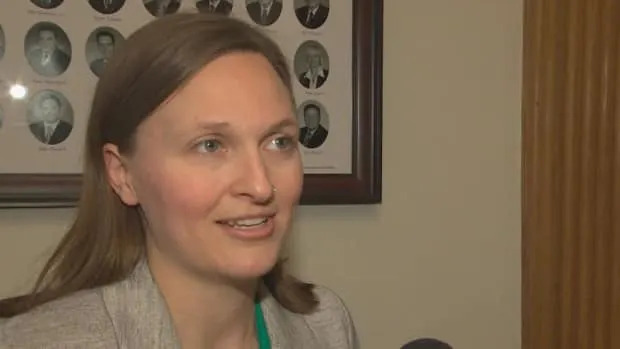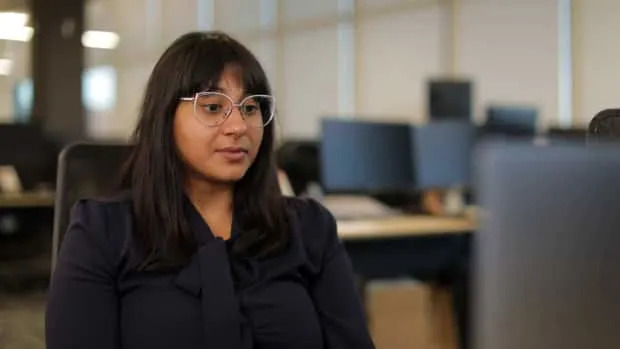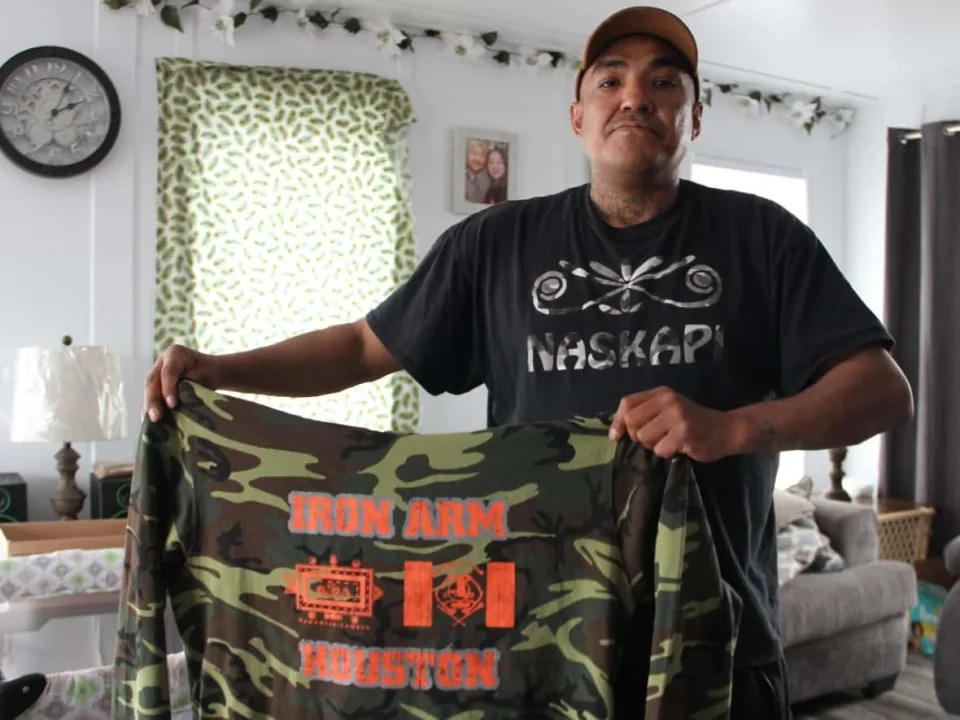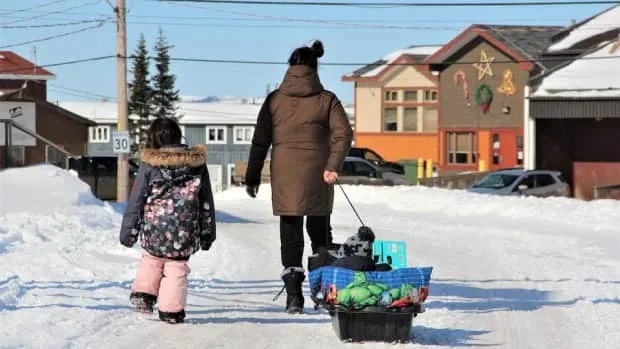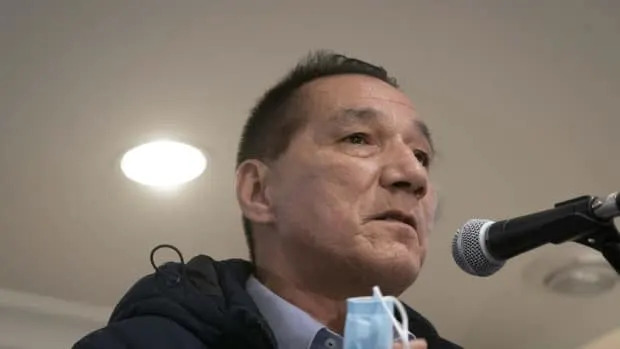5 stories of women tackling climate change with science
Digital Writers
Wed, March 8, 2023

Meet the first women to overwinter alone this small Arctic hut
From Arctic expeditions to innovative solutions, these Canadian women have been on the ground doing what they can to make the world a better place.
International Women’s Day was created to celebrate exactly that: women's achievement, all while raising awareness about discrimination that still exists around the world.
And as the world grapples with the complexity of climate disruption, it’s much needed work. See just exactly what these Canadian women got up to this past year below.
De-icing solutions for icy wind turbines
With colder air temperatures and a higher air density, Canada sees some of its strongest winds during the winter season — a perfect thing for wind farms. But with it comes ice, and that remains a persistent issue across North America.
Water droplets in the air can freeze on spinning turbines when temperatures are at or below 0°C. Accumulating ice makes the blade less aerodynamic, which reduces the amount of energy that can be generated and can cause damage to the turbine. Ice could also be flung hundreds of metres away from the turbines, which presents serious safety concerns.
It’s something Daniela Roeper, founder and CEO of Borealis Wind, decided she wanted to tackle straight out of university. Today they have created a de-icing system that allows the wind turbines to keep spinning.
“We started in 2016 and installed the first systems in 2018. We've sold over 20 systems since then and our systems are running smoothly through the winter with relatively little maintenance,” Roeper told The Weather Network last December.
Now she wants to take this Canadian-made solution international as renewable energy continues to expand worldwide.
Making history with citizen science

Sorby and Fålun Strøm collect samples while Ettra supervises their work. (Hearts in the Ice)
Sunniva Sorby and Hilde Fålun Strøm collect samples while Ettra supervises their work. (Hearts in the Ice)
Could you brave 19 months in a non-insulated hut with no running water (or Netflix! gasp) for citizen science?
That’s exactly what the duo behind Hearts in the Ice did in a history-making expedition to a remote area of Norway’s wilderness in Svalbard. While living in a 20-square-metre hut called Bamsebu, their goal was to collect science data and share knowledge about the climate crisis impacts in the Arctic during the pandemic when it was difficult for researchers to travel as the world went into lockdown.
The initiative was sparked after Norwegian-born Canadian Sunniva Sorby and Norway’s Hilde Fålun Strøm had a chance encounter that led them to embark on the epic journey together — and they aren’t done either.
They told The Weather Network last year they hope to travel to northern Canada for their next citizen science adventure this summer.
READ MORE: These two women made history by overwintering alone in a tiny Arctic hut
Experimenting for better soil
Climate change is expected to bring extended periods of drought. It’s an issue that led research scientist Vicky Levesque to experiment with soil in Nova Scotia’s Annapolis Valley to combat the risks.
The use of chemical fertilizer can have an opposite effect and degrade soil quality, leaving researchers looking for ways to help improve the soil properties and make agriculture sustainable.
One potential solution, says Levesque, is biochar, a substance “produced by thermal decomposition of organic material (biomass such as wood, manure or leaves) under limited supply of oxygen, and at relatively low temperatures (under 700°C),” according to the International Biochar Institute.
Crops using biochar wouldn't see an effect in the first year but Levesque says they would in the second and third it will.
READ MORE: What is biochar and how can it help combat droughts?
These young women are already an inspiration

Melanie Downer, Samia Sami, Sarah Syed
Samia Sami, Melanie Downer, and Sarah Syed all spoke to The Weather Network last year for International Day of Women and Girls in Science. (Submitted)
Who runs the world? Well, according to Beyoncé, it’s girls.
That type of woman empowerment message is also at the core of International Day of Women and Girls in Science declared by the United Nations General Assembly in 2015 to address the “significant gender gap” that has persisted in all levels of science, technology, engineering, and mathematics (STEM) disciplines all over the world.
But more women and girls are getting involved in the sciences every day.
The Weather Network spoke to three of those young women — who were also featured in Starfish Canada’s Top 25 environmentalists under 25 — in February 2022.
From ocean conservation to implementing artificial intelligence into power grids to hackathons and prototypes, they have an impressive list of accomplishments for women their age.
Who's got the power? Moms do
It turns out that climate change isn’t going away in the coming decades, but maybe there will be a brighter future for the next generation if moms realize their power to take climate action.
Mothers across Canada have the potential to enact serious change through household spending, banding together, and teaching their children about the dangers of a changing climate armed with the latest research.
“We see the impacts of climate change all around us. It's no longer a future problem. It’s impacting us in the now and we know it's getting worse,” Toronto mother Brianne Whyte told the Weather Network last May about why she joined the For Our Kids campaign.
Mothers are more powerful than they realize, according to Dr. Melissa Lem.
“My son and the beautiful landscapes in this country are the most wonderful things I've ever seen in my life. And I'm really inspired to protect them,” she said, adding that’s how she got involved in the park prescriptions program for the BC Parks Foundation.
Lem says the research shows being out in nature not only helps with well-being, but appreciating nature often leads to wanting to protect it as well.
Thumbnail image: Daniela Roeper, founder and CEO of Borealis Wind, stands near a wind tower. (Borealis Wind)
















